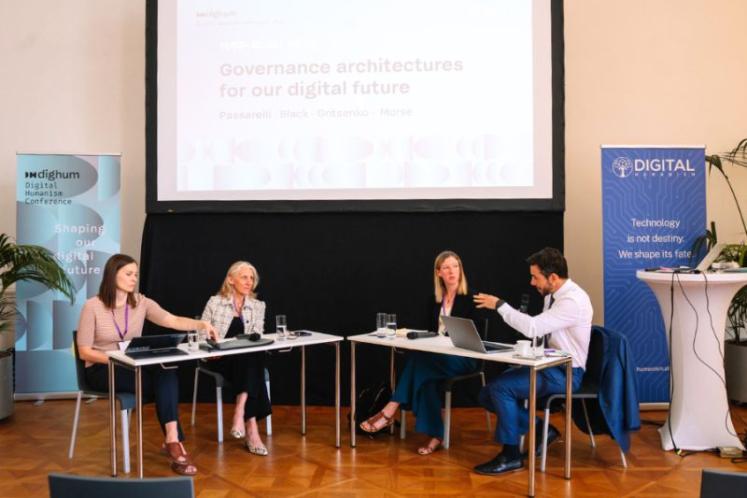At the inaugural Digital Humanism in Vienna, Dr. David Passarelli, Director of UNU-CPR, hosted a panel on the future of digital governance, as part of the Global Governance Innovation Platform. The event was made possible thanks to the City of Vienna, the Vienna Science and Technology Fund (WWTF), Michael Stampfer, Sabine Melnicki, and all partners of the Digital Humanism initiative.
The discussion focused on how global institutions, regulatory frameworks and technical standards can help guide the responsible and inclusive development of emerging technologies. Panelists considered the value of institutional mimicry – borrowing and adapting governance models from one sector to address cooperation challenges in other sectors – to tackle current cooperation challenges. They shed light on past successes in building inclusive, transparent and accountable frameworks that secured broad stakeholder engagement and suggested these could serve as roadmaps for digital governance.
Passarelli was joined by Professor Julia Black (University of Oxford), Professor Julia C Morse (UC Santa Barbara), and Professor Daria Gritsenko (University of Helsinki), who explored how effective digital governance can be achieved through principled regulation, informal institutions that build trust and cooperation, and cross-sector, polycentric approaches suited to complex global challenges.
This rich and thoughtful exchange marks the beginning of continued collaboration on shaping a more equitable and well-governed digital future.


